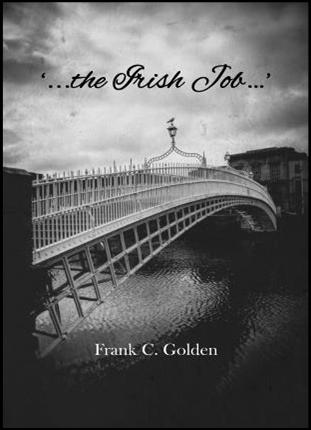
|
Choice Publishing Book Store |
|
“...the Irish Job…”
~ ~ ~
Frank C. Golden
~ ~ ~
ISBN: 978-1-913275-65-5 eBook: 978-1-913275-67-9
Price: € 12.00 plus P&P (within Ireland)
For International Shipping, please click below:
|
|
About the Book:
Lloyd George feared that Ireland might secede from the Empire. In his view, the Irish Job was to prevent this happening, and it must be carried out by a police force. Should the British Army become involved, all would be lost for Britain in Ireland. This novel is set at the time when precisely what Lloyd George feared came to pass. Dublin in 1920 is a city of spies and Irish Volunteers (Oglaigh na hEireann); its operatives embedded in the daily life of the United Kingdom. Michael Collins, a marked man, cycles openly round the city, while Sam Maguire, Head Centre of the Irish Republican Brotherhood in London, coolly orchestrates subversive activities in England. Ex-British Army man Stephen Waite takes up his new post as spy in Dublin. Kate Swanton, confident and self-assured, combines her role as solicitor’s apprentice with that of Cumann na mBan Volunteer. Jack Mernagh, one time boy soldier in the British Army, is cynical and embittered after brutal war experiences in France. The lives of these three interweave across the months leading to the assassinations and reprisals in Croke Park by the British Auxiliaries on Bloody Sunday.
~ ~ ~
About the author:
Frank Golden had a chequered career, as chef, salesman and marketer, before settling down to the life of Barrister and Law Lecturer. A Dubliner, he has read extensively around the period covered in this novel and has drawn on the experiences of his father, who was one of ‘Collins’s men’ in Dublin Castle.
~ ~ ~
Sample Excerpt:
The words were hardly spoken before the two grabbed hold of his arms and dragged him from his seat on to the platform. Until then, outrage and shock had slowed the old man’s reaction. The conductor froze, appalled. Jack stood. Along with some of other passengers he watched Bell grasping the platform handrail with both hands as his captors sought to drag him from the tram. The last two Volunteers now clattered down the stairs and joined the others in manhandling him. Bell’s grip was broken. Dragging him onto the roadway, they hauled him across the cobbles, knocking off his hat in the melee. Close to the kerb, they released him, stepping back a few paces. Bell, shocked and confused, staggered, trying to regain his balance. Moving closer, one of his attackers aimed a gun at the Magistrate’s head. As he fired, Bell jerked his head sideways. The bullet sped harmlessly by. As his killer re-aimed for a second head shot, Bell thrust out his hand, deflecting the pistol downwards as it fired. The bullet penetrated his groin. Bell recoiled and half-turned his head. The final bullet struck him behind the ear. Lifeless, he fell backwards, his body straddling the road and granite kerb. A lady passenger screamed and fainted. In panic, the conductor scrambled up the stairs to the upper deck and pleaded with the passengers there to do something. Bell’s killer stooped down and looked closely at the fatal head wound. Tapping the dying man’s chest with his pistol, he straightened up and nodded to his accomplices. Mick had been right – as usual. Bell wore body armour. Nothing but a head shot would have done this job. His killers turned and calmly walked their separate ways from the macabre scene – secure in the knowledge that no-one would dare to follow as they dispersed in the quiet, tree-lined avenues of Dublin’s most fashionable suburb. By now, Jack had joined the few curious passengers – all male – who had gathered around the dead Magistrate. A few seconds later he turned away and walked towards the city centre. Time, he decided, to move on before the Peelers arrived. Crossing the main road, he turned the corner into Serpentine Road as instructed. In a little over five minutes he reached Sandymount Green. He knocked twice on the side door of the green-painted pub there and was admitted. He handed over the .38 to the barman, left and walked the short distance to catch a tram at Ringsend for the city centre.
|
